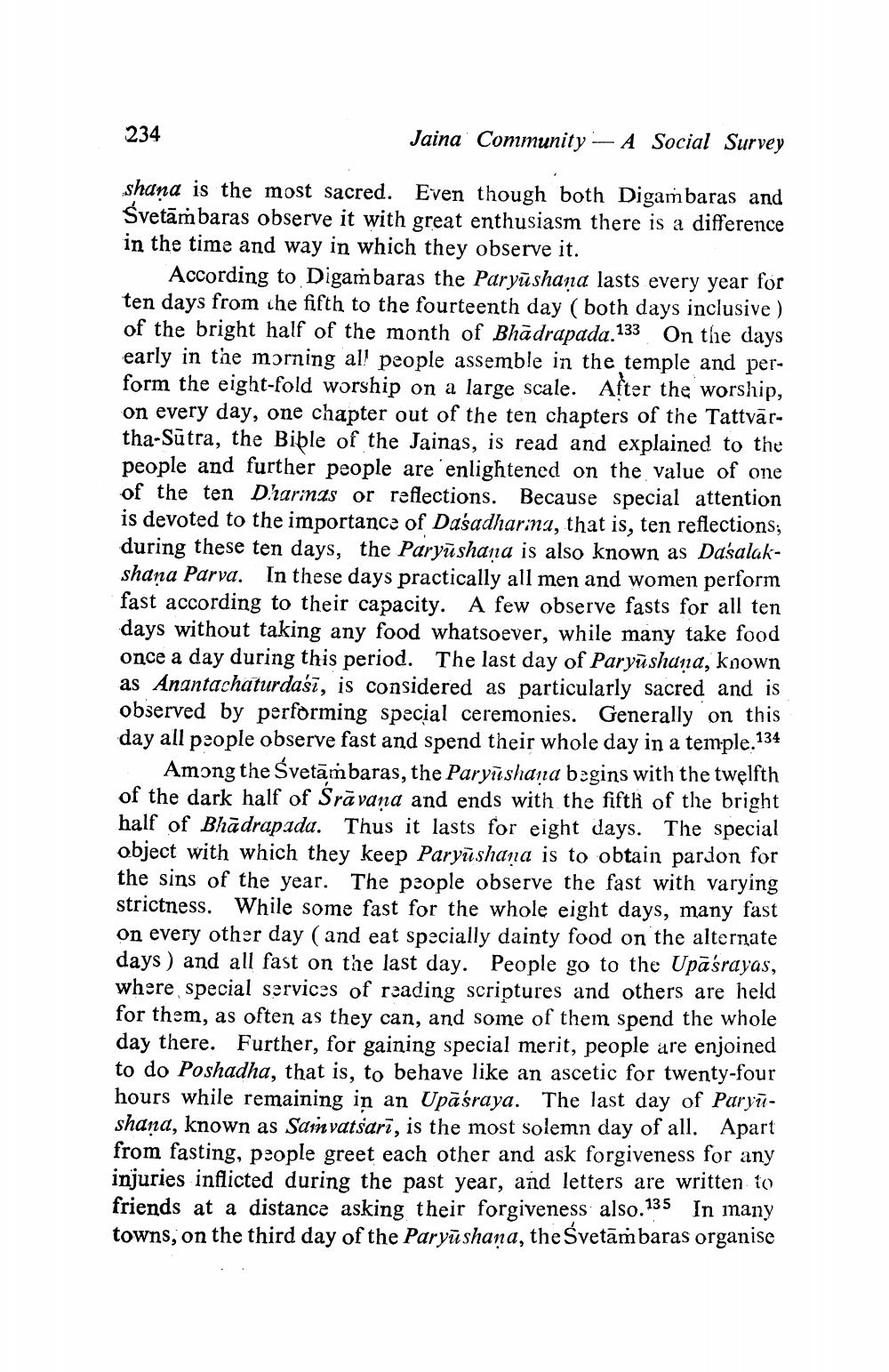________________
234
Jaina Community -- A Social Survey
shana is the most sacred. Even though both Digambaras and Śvetāṁbaras observe it with great enthusiasm there is a difference in the time and way in which they observe it.
According to Digambaras the Paryūshana lasts every year for ten days from the fifth to the fourteenth day (both days inclusive) of the bright half of the month of Bhadrapada.133 On the days early in the morning all people assemble in the temple and perform the eight-fold worship on a large scale. After the worship, on every day, one chapter out of the ten chapters of the Tattvārtha-Sūtra, the Bible of the Jainas, is read and explained to the people and further people are enlightened on the value of one of the ten Dharinas or reflections. Because special attention is devoted to the importance of Dasadharma, that is, ten reflections; during these ten days, the Paryūshana is also known as Dasalakshana Parva. In these days practically all men and women perform fast according to their capacity. A few observe fasts for all ten days without taking any food whatsoever, while many take food once a day during this period. The last day of Paryūshūna, known as Anantachaturdaśī, is considered as particularly sacred and is observed by performing special ceremonies. Generally on this day all people observe fast and spend their whole day in a temple.134
Among the Svetambaras, the Paryżshana begins with the twelfth of the dark half of Srāvana and ends with the fifth of the bright half of Bhadrapada. Thus it lasts for eight days. The special object with which they keep Paryūshana is to obtain pardon for the sins of the year. The people observe the fast with varying strictness. While some fast for the whole eight days, many fast on every other day (and eat specially dainty food on the alternate days ) and all fast on the last day. People go to the Upasrayas, where special services of reading scriptures and others are held for them, as often as they can, and some of them spend the whole day there. Further, for gaining special merit, people are enjoined to do Poshadha, that is, to behave like an ascetic for twenty-four hours while remaining in an Upāśraya. The last day of Paryūshana, known as Sain vatsarī, is the most solemn day of all. Apart from fasting, people greet each other and ask forgiveness for any injuries inflicted during the past year, and letters are written to friends at a distance asking their forgiveness also.135 In many towns, on the third day of the Paryūshaņa, the Svetām baras organise




